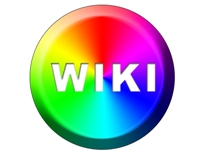- Details
- Category: Directory Directory
- Hits: 6770 6770
 When Tim Berners-Lee invented the World Wide Web in 1989, his primary purpose was to create a collaborative environment in which scientists with common interests could share research findings. However, during the 1990s the web took a dramatic, business-driven turn, and the cooperative dream of its creator was lost in the dot-com stampede. But with the advent of a more user-involved internet (dubbed “Web 2.0”), we are experiencing a rebirth of Berners-Lee’s vision. The heart of Web 2.0 is social networking – programs that enable user-friendly, real-time communication among browsers.
When Tim Berners-Lee invented the World Wide Web in 1989, his primary purpose was to create a collaborative environment in which scientists with common interests could share research findings. However, during the 1990s the web took a dramatic, business-driven turn, and the cooperative dream of its creator was lost in the dot-com stampede. But with the advent of a more user-involved internet (dubbed “Web 2.0”), we are experiencing a rebirth of Berners-Lee’s vision. The heart of Web 2.0 is social networking – programs that enable user-friendly, real-time communication among browsers.
Instant messaging (IM) and weblogs (blogs) are among the most popular examples. One promising development yet to achieve its full potential is the fascinating family of programs known as “wiki.”
WIKI – BEGINNINGS AND BICKERINGS
A wiki is a specialized website designed for collaborative construction. In other words, users are permitted to add, delete, and modify the content of the site. The wiki idea was the brainchild of Ward Cunningham, who established WikiWikiWeb in 1995, devoted to the history of software development. Cunningham adopted the word “wiki,” Hawaiian for “quick,” from the name of a shuttle bus line at the Honolulu Airport. The largest and most famous wiki is Wikipedia an online encyclopedia showcasing the collaborative efforts of millions of contributors worldwide. Although the respected science journal Nature published a study comparing Wikipedia favorably to Encyclopedia Britannica (a study Britannica rebutted, the do-it-ourselves research site has been the subject of much recent controversy (see, e.g., the charges by John Seigenthaler in USA Today and the follow-up article in the New York Times). Criticisms stem largely from the anonymity of contributors, leading to the virtual impossibility of verifying their credentials or the reliability of posted content.
WIKI IN BUSINESS
Despite these and other difficulties, the wiki idea holds a great deal of promise for business, particularly in the area of project management. A wiki website allows all of those working on a given project to report their progress in real time, and in an organized fashion that fits the new data into the overall project report precisely where it is most relevant. For example, new feasibility findings can be instantly added to the wiki, bulleted below previous findings, rather than included in a memo directing project members to add the data to a given file or engage in some other cumbersome busy work. Also, incorrect or superseded data can be eliminated and replaced, cutting down on the confusion that inevitably results when outdated reports stick around. While corporate level content management software has been available for several years, Information Week gives three reasons why wikis are preferable:
- They are “cheap, extensible, and easy to implement.” Content management software is routinely expensive and user-unfriendly.
- Because they are web-based, wikis “present little or no learning curve in the adoption cycle.” Anyone familiar with web browsers can begin using wikis almost immediately.
- Wikis are collaboration-oriented, while project management software is workflow-oriented. “A traditional project management tool simply cannot reproduce the environment of collaboration and involvement that wikis create.”
Companies successfully employing wikis in project management and other tasks include Motorola, Nokia, Cingular, Disney, and Yahoo.
AVOIDING THE WIKI PITFALLS
So how does one utilize wiki technology effectively without falling into traps like those reported above? Information Week notes two features that distinguish successful business wikis: (i) they are intranet websites behind company firewalls; and (ii) they are for official use only. That is, wikis work best when they are focused on a specific project and access is limited to those with a direct stake in that project. The effectiveness of wikis appears to be in inverse proportion to their accessibility – the wider open they are, the less they get accomplished. It is also important to understand and respect the difference between a wiki and a blog. The latter is much more conversational and chronological than the former, designed to keep a record of the free flow of ideas and the evolution of opinions. Wikis are designed to build a homogeneous document representing the best its collaborators have to offer at any given time. The history, conversation, and banter that are the heart and soul of a blog would be only so much noise and distraction on a wiki. Blogs have their place, even in business. But they cannot do wiki work.
WHICH WIKI WILL DO?
Not surprisingly, the marketplace is now replete with wiki software packages, all claiming to be ideal for home and business alike. Some of the most prominent include JotSpot, Social text, Confluence, Twiki, and PerspectiveWikiMatrix.org provides a comparison wizard that helps determine which products best serve a given set of needs, as well as a very helpful library of articles and announcements concerning the wide world of wiki. The following chart compares several of the options to be considered in choosing a software preference.
| PLATFORM | Web-hosted: No software to install, site maintained on company server. | Software: loaded on local server, site maintained in-house. |
© 2007-2009 Kamaron Press. All rights reserved. A Business Resources from Resource Center. Resources Center is another educational outreach of the Kamaron Institute and founder Margaret Ross
